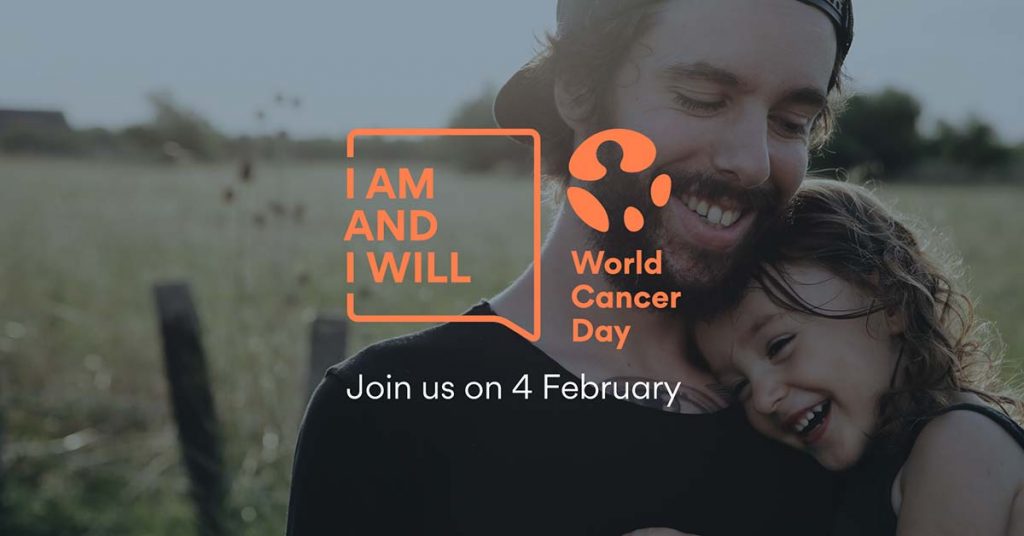
Uniting to Raise Awareness
February 4th is recognized as World Cancer Day, which is the global uniting initiative led by the Union for International Cancer Control.
The UICC is raising worldwide awareness, improving education through personal, collective, and government action, they’re working together to reimagine a world where millions of preventable cancer deaths are saved and access to lifesaving cancer treatment—no matter who you are or where you live. (UICC 2020)
Every year, hundreds of events take place around the world, gathering communities, in schools, businesses, hospitals, marketplaces, parks, community halls, places of worship—in the streets and online—acting as a powerful reminder to everyone that we all have a role to play in reducing the global impact of cancer.
Key Cancer Facts –
- 9.6 million people die from cancer every year.
- At least one-third of common cancers are preventable.
- Cancer is the second-leading cause of death worldwide.
- 70% of cancer deaths occur in low-to-middle income countries.
- Up to 3.7 million lives could be saved each year by implementing resource appropriate strategies for prevention, early detection, and treatment.
- The total annual economic cost of cancer is estimated at US $1.16 trillion. (UICC 2020)
What We Should Know About Cancer
In simple words, Cancer refers to the development of abnormal cells that divide uncontrollably and can infiltrate and destroy normal body tissue. Cancer often can spread throughout your body. World Cancer Day aims to inspire and encourage individuals, the health community, and governments to improve public awareness and access to early detection and diagnosis.
Early Diagnosis Benefits
- Early diagnosis improves the survival rates – The majority of cancers are detectable and when it is detected at an early stage, the chance of survival increases five years which is dramatically higher than when detected at a later stage.
- Early diagnosis saves money – Treatment for cancer patients who have been diagnosed early is 2 to 4 times less expensive compared to treating people diagnosed with cancer at more advanced and later stages. (WHO 2016)
Early Diagnosis Barriers
80% of the time “low awareness” is the main barrier for undergoing cancer screening and early detection. However, few common barriers individuals come up against are age, masculine gender norms, and feelings of shame and fear.
Although there is also an opportunity to increase awareness among doctors, nurses, and other health practitioners to improve early cancer detection, especially at the primary care level to avoid such situations.
To improve early detection, screening, and diagnosis, and in line with guidelines set out by the World Health Organization, UICC recommends that all governments should:
- Implement measures to reduce stigma and improve public awareness of the signs and symptoms of cancer
- Implement cost-effective population-based screenings and early detection programs
- Strengthen national health systems’ referral mechanisms for suspected cancers to facilities providing diagnostic and treatment services
- Increase investment in diagnostic capacities (World Cancer Day 2019)
There are ample ways to find more information about cancer, but if you have any immediate concerns about having cancer, your first source of information should be your doctor.
Works Cited
“About Us: World Cancer Day.” About Us | World Cancer Day,
www.worldcancerday.org/about-us.
“What Is Cancer?: World Cancer Day.” What Is Cancer? | World Cancer Day,
www.worldcancerday.org/what-cancer#whatiscancer.
“Early Detection of Cancer.” World Health Organization, World Health Organization, 21 Jan. 2016, www.who.int/cancer/detection/en/.
“World Cancer Day 2019: Official Press Release: World Cancer Day.” World Cancer Day 2019 | Official Press Release | World Cancer Day,
www.worldcancerday.org/world-cancer-day-2019-official-press-release.
